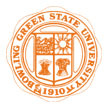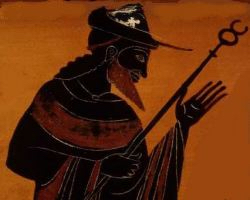Due
Date: Wednesday August 14 at 11:59 PM. (The assignment
will stay open for one more day, for late arrivals, but if
nothing is submitted by the end of Thursday August 15, you
won't be able to pass the course. If you can't finish the
paper on time, contact me in advance so that we can arrange
for an incomplete.)
Description: A 1000 word (minimum) essay about Ovid and
mythology. (Double-spaced, 1 inch margins, 10-12 pt. font.
Remember: when
double-spacing, do not put extra
space after a paragraph break. Yes, I take points off
for this.)
Technical Details:
Submit it to me via Canvas on or before August 14 (August 15
at the latest). Don't email me the essay.
Remember this helpful page for ITS:
https://www.bgsu.edu/its/contact.html
Necessary Elements: You need to argue some
position that connects Ovid and his book to mythology and/or
to Greek and Roman culture generally. You do not need to do
research for this essay, and I don't encourage you to do so
(as odd as that may sound). Your grade will depend on how
well you understand Ovid and the myths we've studied in this
course (and how well you show me that you do). You don't
need a bibliography for the paper, but if you cite or quote
anything except for Fairbanks or Kline, you should tell me
where the words come from (specifically). If you quote Ovid,
it should be from Kline's translation; if you quote a
general book on classical mythology, it should be Fairbanks'
text (unless you're contrasting Fairbanks with someone else;
e.g: "Fairbanks (p. 22) says Walrusius has red tusks, but in
Cal's Complete Compendium of Classical Myths (p. 729)
it says that he had green ones").
HEY, THIS IS IMPORTANT: DON'T SKIP
THIS PART>>>>>>>
Don't use outside sources for this paper without
checking first with me about each one. In general I will
say, "Don't use them," so you can save time by not using
them. This isn't a research paper. Googling
stuff isn't research, anyway. And this hasn't
been the kind of course that sets up a research paper.
It's a survey course of classical myth, with special
reference to Ovid's Metamorphoses.
Your final project should show me (a) that you know
something about classical myth, (b) that you have read
Ovid in Kline's translation, and (c) that you have
thought about them. Running internet searches at Google
(or EBSCOHOST or anywhere else) doesn't achieve any of
those aims.
<<<<<<<<<<The
rest of this page is important, too, but, really, pay
attention to this part.
Topics: I don't want to limit you but among the
things you could discuss are: whether Ovid believes in the
religion that generated his mythology; whether the book is
meant to praise Augustus and his family or satirize them;
whether Ovid changes Greek myths for the benefit of his
Roman audience (or vice versa); whether Ovid would change
his myths to appeal to a modern audience, and how; whether
Ovid's version of mythology is immoral, amoral, or moral
(and according to whose morality); whether the visual
components of the course tell a fundamentally different
version of myth than Ovid does--and, if so, why; what impact
Ovid had on later tellings and retellings of mythology,
especially in other media; etc. Especially etc. Pick a topic
you can write a few detailed pages about. You can write more
than 1000 words if you want to, but don't write less.
BG Perspectives Stuff:


